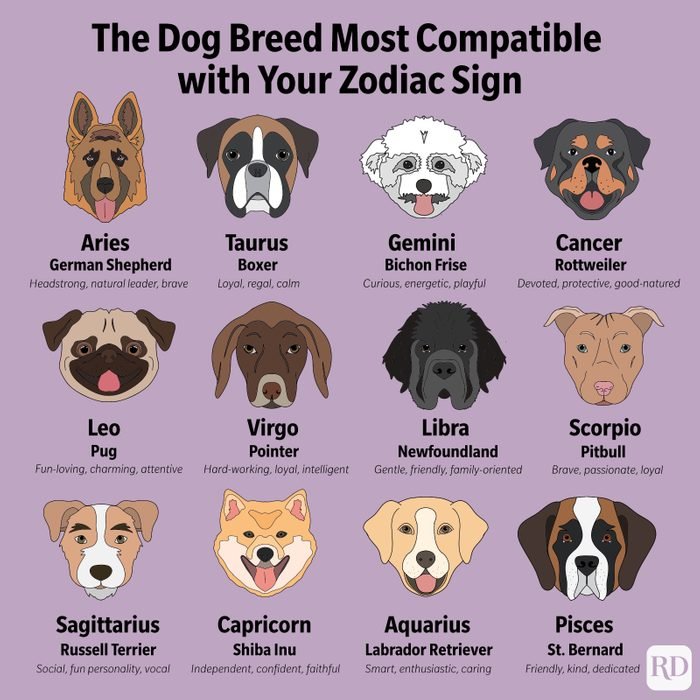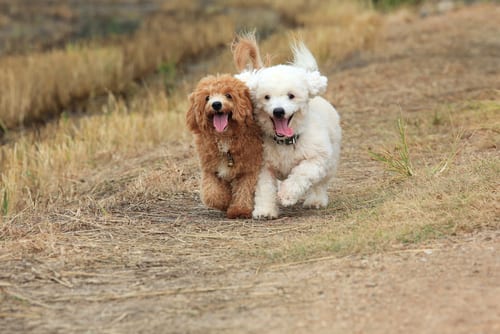
The beagle, a smaller scent hound, is related to the larger Foxhound. The original purpose of this breed was to hunt hare. Today, the beagle is a great hunting dog that can be found all over the world. The beagle is extremely vigilant and can pinpoint its prey with pinpoint accuracy.
Xenophon (1897), Hunting (Cynegeticus).
The essay by Xenophon "On Hunting With the Beagle", outlines important steps to hunt with the beagle. First, the hunter should train his hounds to see the Hare. Then, the master should feed his hounds near the hare's nets. Once the hare's been captured, the hunter needs to reward the hunting party with food.
Xenophon discusses hunting's importance and its contribution to the war effort. Hunting can provide a way to help fellow soldiers get out of trouble. Hunting helps men become more upright and sober. Men who hunt for virtue make better soldiers.
Xenophon's explanation of hunting with the beagle by Xenophon is both fascinating and thought-provoking. He describes the importance of using different types of hounds to find the game, and then describes different modes of chasing. Some dogs will pursue the target using an unspecific approach. Others may use a more physical approach to the chase. While others might feel jealous, others simply follow the lead.

Before the advent of foxhunting, beagles were used for hunting hare. Young and old hunters alike found the beagle to be a good hunting companion. The beagle was also the best dog for hunting in undergrowth, and its scent-tracking ability made it an excellent hunting dog.
Xenophon (1897), Xenogeticus
The political philosophy of Xenophon is open to interpretation and debate. However, certain works show his distaste for democracy and inclination toward oligarchy. Cyropaedia (one of his works) is one such. It is a valuable work for those who want to understand Xenophon’s political philosophy.
Xenophon (or Xenophon) was a military leader and philosopher. He was born and commanded the Greek mercenary military army in 401 BC. During this time, he established precedents for many logistical operations. He also was the first to describe tactical flanking maneuvers and feints in battle.
Xenophon’s works mainly reflect his personal experiences. For example, the Anabasis or Cyropaedia describes his adventure between 401 and 400 BCE. He was also associated as a teacher, Socrates. The Hellenica, on other hand, is his personal perspective on the politicalomilitary and military history of his times. Furthermore, his works on military command and household management are the product of personal experience.
Xenophon also wrote six works other than his Xenogeticus. Cynegeticus is one of them and deals with the technical aspects of hunting. It provides information about hunting with dogs or nets. Xenophon believes that hunting is a divinely ordained activity that encourages excellence. De re equestri is another work that deals with horse ownership. Finally, his book Cavalry Commander is about improving the Athenian cavalry corps.

Xenophon's ethical system is closely tied to the gods. In ritual and other ethical contexts, he frequently refers to the gods. While Xenophon may have had a pragmatic attitude towards the gods, he insisted on the moral component in practical skills.
Xenophon was a rich equestrian and was born circa 430 BC. He was part of the revolutionary army that supported Cyrus the Younger. Later, he was involved in the revolt against Artaxerxes I in 401 BC. Xenophon played a pivotal role in the Persian campaign against Artaxerxes II.
FAQ
How long should a dog stay indoors?
Dogs are naturally curious. They need to have an outlet for this curiosity. They can become destructive if they don't have an outlet. This can lead directly to destruction of property or injury to people.
Outside, it is important to keep your dog on a leash. The leash keeps them from getting into trouble while allowing them to explore their environment safely.
Dogs will get bored and restless if they are kept inside for too long. He will chew furniture and other items. His nails may grow too long, which could lead to health issues.
These negative consequences can be avoided by allowing your dog to run free at all times. Take him out for a walk, take him for a drive in the car, and/or to the park.
This will help him burn off energy and give him something constructive to do.
How to train your pet
It is important to be consistent when training your dog or cat. Be consistent in your treatment of them. They will start to distrust you if your behavior is unkind. They might believe all people are evil.
If you don't treat them with respect, they will not know what else to expect. This could lead them to be anxious around other people.
Positive reinforcement is the best way to teach your cat or dog. They will be motivated to perform the same behavior if you reward them.
Punishing them when they do something wrong will associate bad behaviors with punishment rather than rewards.
Good behavior should be reinforced with treats, such as food and toys. Also, try giving praise whenever possible.
Clickers can be used to train your pet. Clicking refers to a method where your pet taps on a button in order to let you know that he did well.
This is because clicking indicates "good job" to animals.
First, show your pet the trick. Next, reward your pet by asking him to perform the trick.
Praise him when he does the right thing. Be careful not to overdo it. You should only praise him once.
It's also important that you set limits. It's important to set limits. You should also not allow your pet to bite strangers.
Be sure to keep your pet safe so he doesn't get hurt.
Should I spay/neuter my dog?
Yes! Spaying and neutering your dog is very important.
It not only reduces unwanted puppies around the world but also lowers the risk of some diseases.
There is, for instance, a greater chance of breast cancer in female dogs that in male dogs.
And there is a higher risk of testicular cancer in males than females.
Also, spaying or neutering your pet will prevent her from having children.
Are there three things you need to keep in mind before you buy a cat?
These are the questions to ask before you buy a cat.
-
Does the cat have any health issues?
-
Is it possible for the cat to eat all my food.
-
Is it because I am a lover of cats or do you just want a pet to play with?
What are my considerations before I get an exotic pet?
You need to be careful before you decide to buy an exotic pet. You must decide whether you plan to keep the animal or sell it. If you are keeping the animal as your pet, ensure that you have enough space. You should also know how much you plan to spend on the animal's care. Although it takes time to care and love an animal, it is well worth the effort.
If you're looking to sell the animal then you should find someone willing and able to buy it. Make sure the person buying your animal knows how to take care of it. You should not feed the animal too often. This could lead to health problems down the line.
If you choose to get an exotic pet, then you need to make sure that you research all aspects of them. Numerous websites offer information on different types of pets. Be wary of scams.
What's your favourite pet?
The best pet? One you love. There is no right answer here. Every individual has his/her own opinion on the best pet.
Some believe that cats are better than their canine counterparts. Some people believe that dogs are more loving and loyal than cats. Some argue that birds are the best pet.
Regardless of the type of pet that you decide to get, it is important that you determine what type of pet best suits you.
A dog is the best choice for someone who is outgoing, friendly, and affectionate. A cat is the best choice for you if you are shy or reserved.
Also, take into account the size your house or apartment. If your apartment is small, you'll need to have a smaller pet. However, a larger house will mean that your pet will need more space.
Remember that pets need lots of attention. They need to be fed regularly. They should be taken on walks. And they need to be brushed and cleaned.
You'll be able pick the best pet for you if you have all of these knowledge.
What are your considerations when choosing a pet to own?
Consider what lifestyle you want for your family and yourself. Do you have children? If yes, how many? How old are they now Are there any special dietary requirements?
Do you have allergies? Are there any other things you should know about your pet's health?
After answering these questions, consider whether you are looking for an active companion or a calm lap dog, a house-trained pet, or a tank of tropical fish.
If you are considering adopting a puppy from a shelter, rescue group or other organization, you should meet them and make sure that you feel comfortable with them.
You'll also want to know if the animal has been vaccinated against rabies and other diseases.
Next, check with the owner to see if he/she will take care your animal while you're on vacation. This will allow you to leave your pet at home and not worry about it.
Remember that pets are part your family. If you don't like them, you shouldn’t adopt them.
Statistics
- Monthly costs are for a one-year-old female mixed-breed dog and an under one-year-old male domestic shorthair cat, respectively, in excellent health residing in Texas, with a $500 annual deductible, $5,000 annual benefit limit, and 90% reimbursement rate. (usnews.com)
- For example, if your policy has a 90% reimbursement rate and you've already met your deductible, your insurer would pay you 90% of the amount you paid the vet, as long as you're still below the coverage limits of your policy. (usnews.com)
- It's among a relatively few companies that provide policies with a full (100%) coverage option, meaning you are not responsible for any co-payment of bills. (money.com)
- It is estimated that the average cost per year of owning a cat or dog is about $1,000. (sspca.org)
- * Monthly costs are for a 1-year-old female mixed-breed dog and a male domestic shorthair cat less than a year old, respectively, in excellent health residing in Texas, with a $500 annual deductible, $5,000 annual benefit limit, and 90% reimbursement rate. (usnews.com)
External Links
How To
The best way to tell a dog where it is appropriate to go to urinate.
Teaching your pet how to use the toilet correctly is essential. It is also crucial to be able to teach them how to behave if they decide to go outside on their own. These are some things to remember when teaching your dog how to properly use the toilet.
-
Get started training as soon as possible. You don't want any injuries during playtime. Start training today!
-
Use food rewards. Reward your pet for every successful trip to the toilet.
-
Keep treats out of the areas where your pooch pees. You might cause your pooch to associate urine smell with his favorite treat.
-
Before you let your dog out, ensure that there isn’t another animal nearby. Dogs that see other dogs relieve themselves might think this is normal.
-
Be patient. It may take your puppy a while to get the hang of things than an adult.
-
Before you let your dog go to the bathroom, let her sniff everything. It's easier for her to learn if she has a chance first to smell the toilet.
-
While you are taking care of business, don't allow your dog to stand near the toilet. This could cause confusion.
-
After you are done, clean the toilet seat and the area around it. These areas will act as a reminder of what to do later.
-
You must immediately clean up any mess. Make sure your dog is completely clean after an accident. Otherwise, he might make a second attempt at relieving himself.